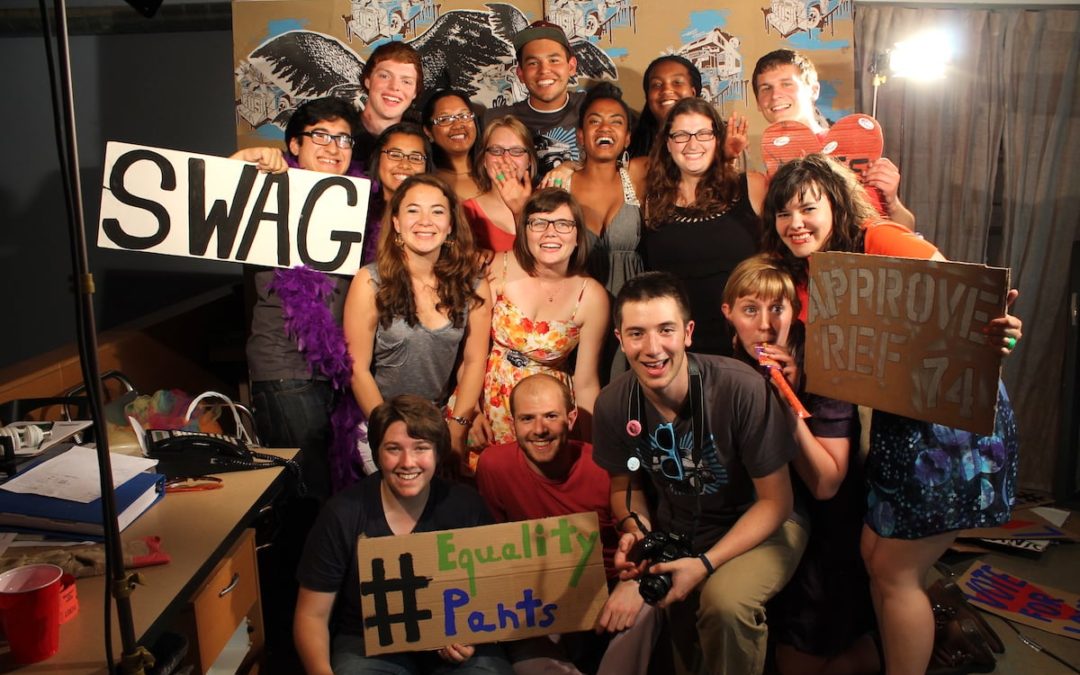
Youth Homelessness Training @ New Horizons
On the night of July 1st, I attended Ropes, a homeless youth training program run by New Horizons’ staff, Joseph Seia and Tristan Herman.
The training was both intensive and interactive. At first, we were asked to name the various causes and characteristics (both stereotypes and realities) associated with youth homelessness. Then, we were taught to analyze ways in which volunteers can appropriately support these populations to minimize power differentials and transactional relationships. We participated in a role playing exercise, in which we were given identification cards of respective homeless youths, and asked to achieve a set of goals (i.e. SSI, transitional housing, a bed for the night, medical care, etc.) from service organizations played by other training attendees.
I played the character of 25 year-old Sage, an African-American transgendered female, who had recently escaped the confines of an abusive relationship, and had no financial backing. In our role play, Sage was denied SSI from DHHS because her illiteracy prevented her from filling out the right forms, denied transitional housing because of her anxiety during her housing interview, and was sent to jail for not being able to pay two tickets for jaywalking (is that even a real crime?).
Throughout the exercise, the police did little to help Sage and the other youth—rather, they were stifling. Right before the exercise was over, Sage received a change card, detailing a hate crime incident that left her in the hospital. She could not afford to pay the $1200 medical bill, and she was sent to jail. Again.
The exercise was difficult for everyone involved—service organizers were torn between wanting to do what was humane (denying no one) versus what they were told to do (stick to bureaucratic routines, rules, etc.). The exercise helped me to realize how readily the homeless are dehumanized or victimized by not only the public, but by government and law enforcement officials as well. Playing the role of Sage was especially difficult given her gender identity—in almost every scenario, she had a significantly harder time achieving her goals than did cisgender youths participating in the same exercise.
Joseph stated, “How you receive [trans youths] at the door [of any organization] will determine whether or not they continue to come back,” highlighting the importance of LGBTQ education in his work. As hate crimes increase on the streets, the world becomes infinitely more cruel towards LGBTQ homeless youth. Violence aside, Joseph and Tristan explained how internalized oppression is one of the most lasting and dangerous effects of youth homelessness. Tristan argued that one of the biggest obstacles New Horizons faces is “young folks’ really low self-worth… this unshakable sense of inferiority.” Internalized oppression drastically increases drug and alcohol abuse on the streets, as well, making it even harder to reach out for support.
This training was super helpful (thanks Joseph and Tristan!) and informative. I’d strongly recommend attending—you won’t be the same person when you leave.
This blog post was written by Natalie, a Public Policy major at Duke University and the Bus’ 2015 DukeEngage Intern.


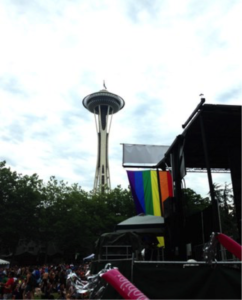 The Bus had four fellows involved in TransPride this year, whose primary responsibility was to register voters and engage people in The Bus’ youth agenda (police accountability, youth employment, housing accessibility, specifically) in regards to issues within and around Seattle’s trans community. Namely, there has been a recent increase in trans related hate crimes and violence, the necessity for protection against discrimination in the workplace, and the need for safe and affordable housing. This past year, Seattle had the third-highest rate of LGBTQ-related hate crimes in the United States.
The Bus had four fellows involved in TransPride this year, whose primary responsibility was to register voters and engage people in The Bus’ youth agenda (police accountability, youth employment, housing accessibility, specifically) in regards to issues within and around Seattle’s trans community. Namely, there has been a recent increase in trans related hate crimes and violence, the necessity for protection against discrimination in the workplace, and the need for safe and affordable housing. This past year, Seattle had the third-highest rate of LGBTQ-related hate crimes in the United States.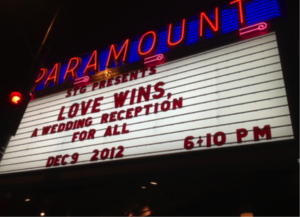
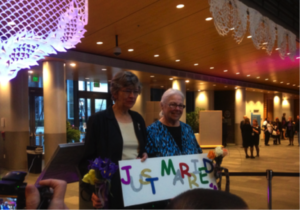
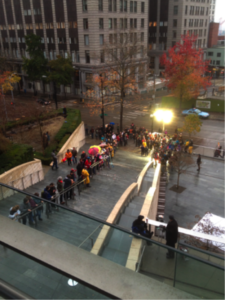 On Sunday, December 9th Seattle City Hall was brimming with couples excited to tie the knot. Judges, city officials, and members of the community came out in droves to volunteer their time in order to make everything come together.
On Sunday, December 9th Seattle City Hall was brimming with couples excited to tie the knot. Judges, city officials, and members of the community came out in droves to volunteer their time in order to make everything come together.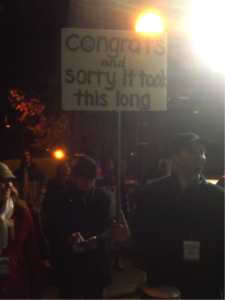 One other congratulation in order:
One other congratulation in order: 